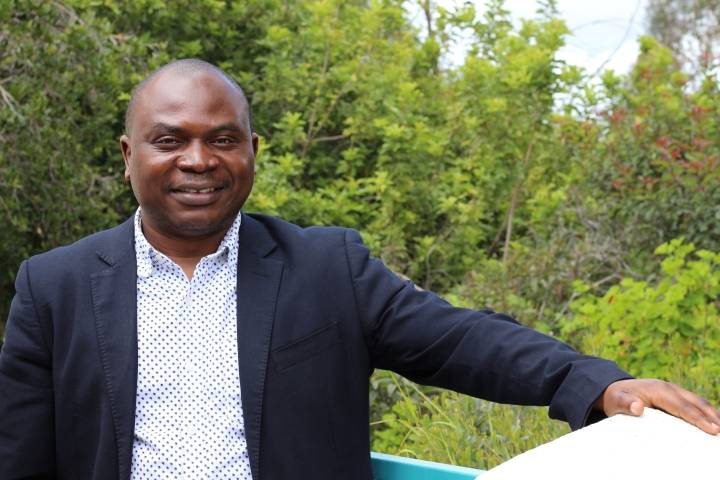SDSU international scholar seeks to thwart substance abuse in his native Zambia
Psychiatrist Brian Maila recently won a Rotary Foundation grant to further his academic research on interventions for substance use disorders in low-resource settings

Brian Maila’s academic journey to San Diego State University originated not in the classroom but at his father’s grocery stores in his hometown of Kabwe, Central Province of Zambia.
As a young teenager, Maila began managing the family markets, spending considerable time at what he saw as an eventual career in business.
His father, however, had a different vision for his future.
“He came to me and said Sonny, I have looked at your results at school, and I am impressed that you are doing well. I would rather you focus on school than on business,” recalled Maila. “This business, let your young brothers and I focus on it.”
That conversation sent Maila on a path to becoming the first member of his immediate family to earn a university degree. Now, he researches addiction, treatment, policy, and prevention in the Joint Doctoral Program in Interdisciplinary Research on Substance Use at SDSU and the University of California, San Diego.
Maila’s academic endeavors were recently enhanced when he was awarded a $41,400 grant from The Rotary Foundation to finance his studies in the United States. Rotary District 5340, The Rotary Club of Del Mar and The Rotary Club of Nkwazi in Lusaka, Zambia jointly sponsored Maila for the 2024-25 academic year award.
Maila becomes the fourth SDSU student since 2015 to receive financial backing through this specific Rotary program. Other recipients came from Uganda, Brazil and Sri Lanka.
“Our district always chooses to support an international student, someone who is from a developing country,” said Janice Kurth, Rotary Foundation chair for the San Diego/Imperial counties district and a member of Rotary Club of Del Mar. “Our primary focus with this grant is to prioritize global and public health.”
The district encompasses 60-plus Rotary Clubs in greater San Diego and Imperial counties. However, some individual Rotary Clubs also have their own programs supporting international scholars and projects. Old Mission Rotary, for example, has been a long-time funder of nutrition and other public health projects in rural Mexico for VIIDAI, a binational health and research collaboration between SDSU, UCSD and Universidad Autónoma de Baja California.
An international student’s hometown Rotary Club must officially support the grant for the student to receive funding. While these hometown Rotary Clubs do not provide money themselves, their role is essential to fostering international collaboration and relationships, said Kurth.
After earning his degree in Zambia, Maila traveled to Australia and South Africa for a six-week program on mental health and substance use, including opioid treatment. When he returned, Maila began implementing what he learned at the hospital where he worked.
Those efforts helped him land a Hubert H. Humphrey Fellowship through the State Department’s Institute of International Education to study at Virginia Commonwealth University.
Afterward, he returned to Zambia and put his education into practice again at the hospital. But Maila felt he needed key expertise. While well versed in treating substance use, he needed to learn more about prevention policies, community engagement, and theories underpinning both drug use and evidence-based interventions.
“I needed to delve into research,” he said. “Research will help me address these issues at a larger scale, rather than address issues at the individual level.”
Maila will complete his JDP classes at SDSU this spring and then relocate to UCSD in the fall to pursue further courses before commencing his dissertation.
“I have keen interest in alcohol, opioids, and cigarette smoking,” he said. “It is high time we got researchers trained in this area to help address the substance use problem, because it is a growing concern in Sub-Saharan Africa.”

